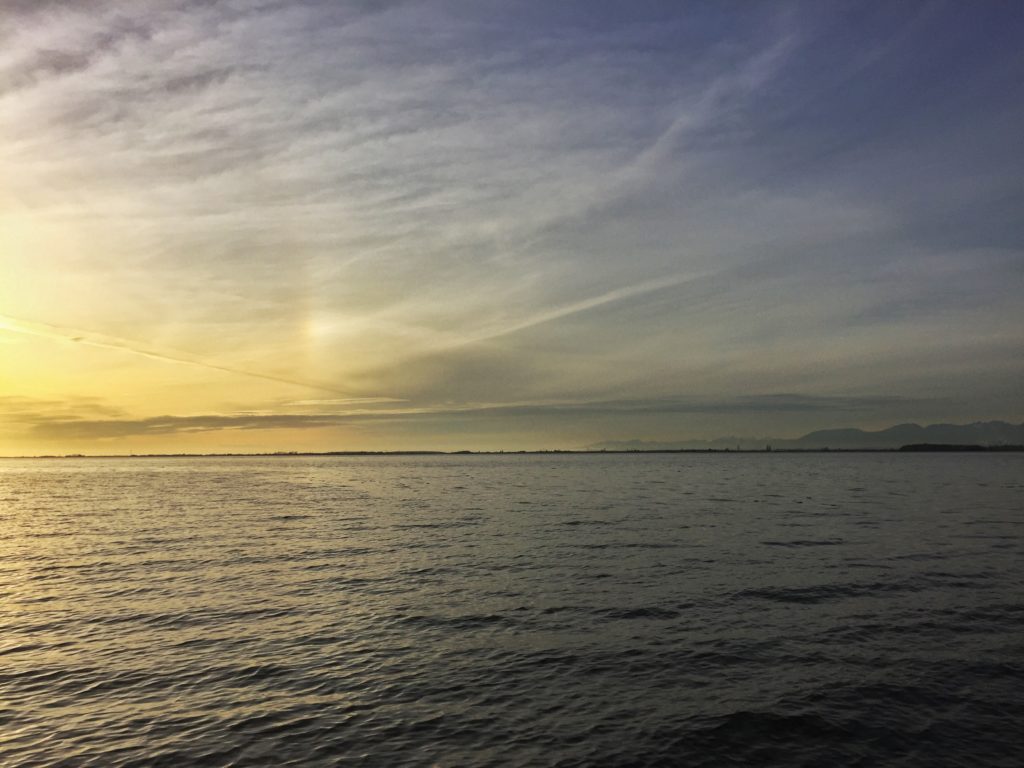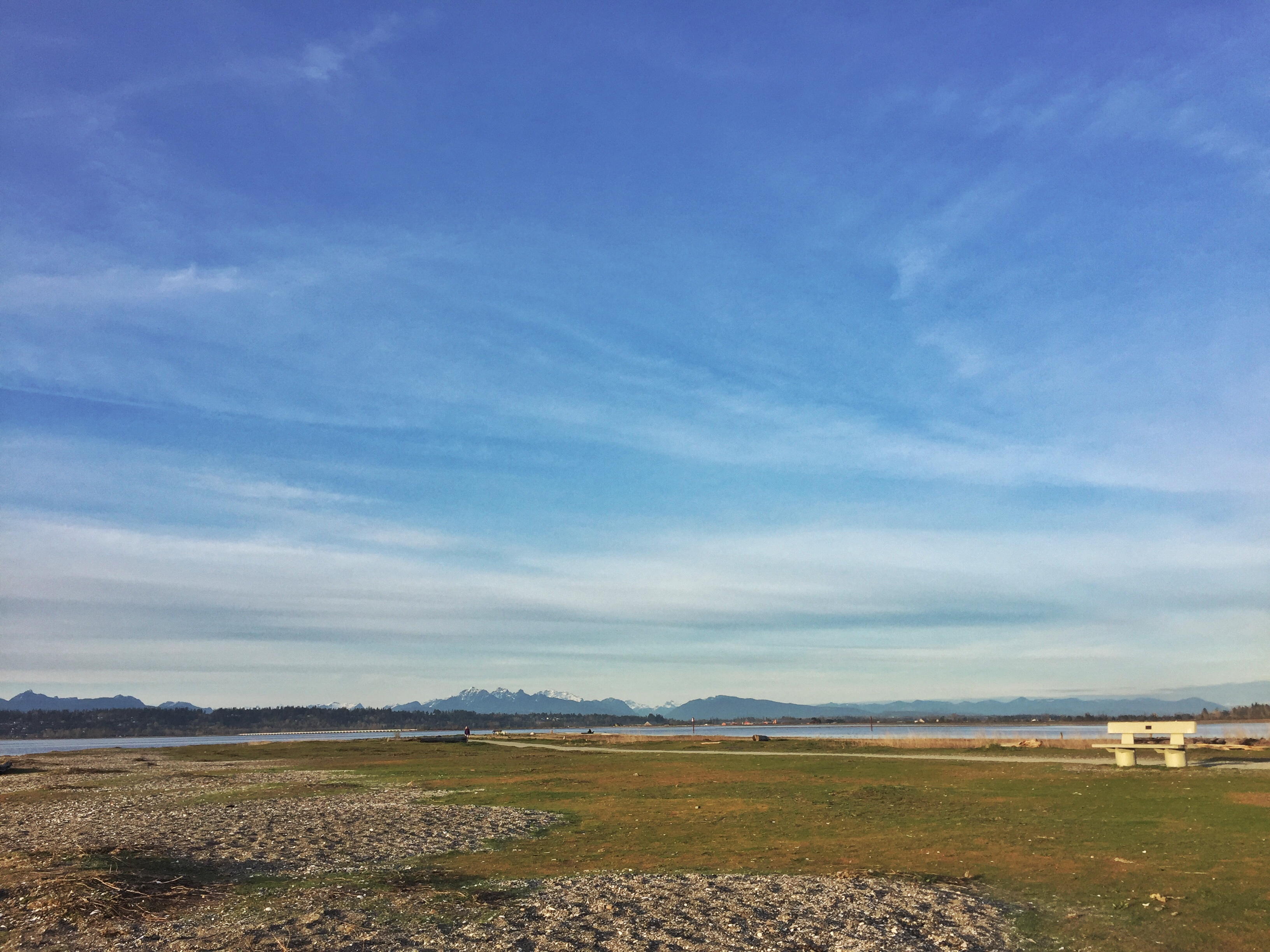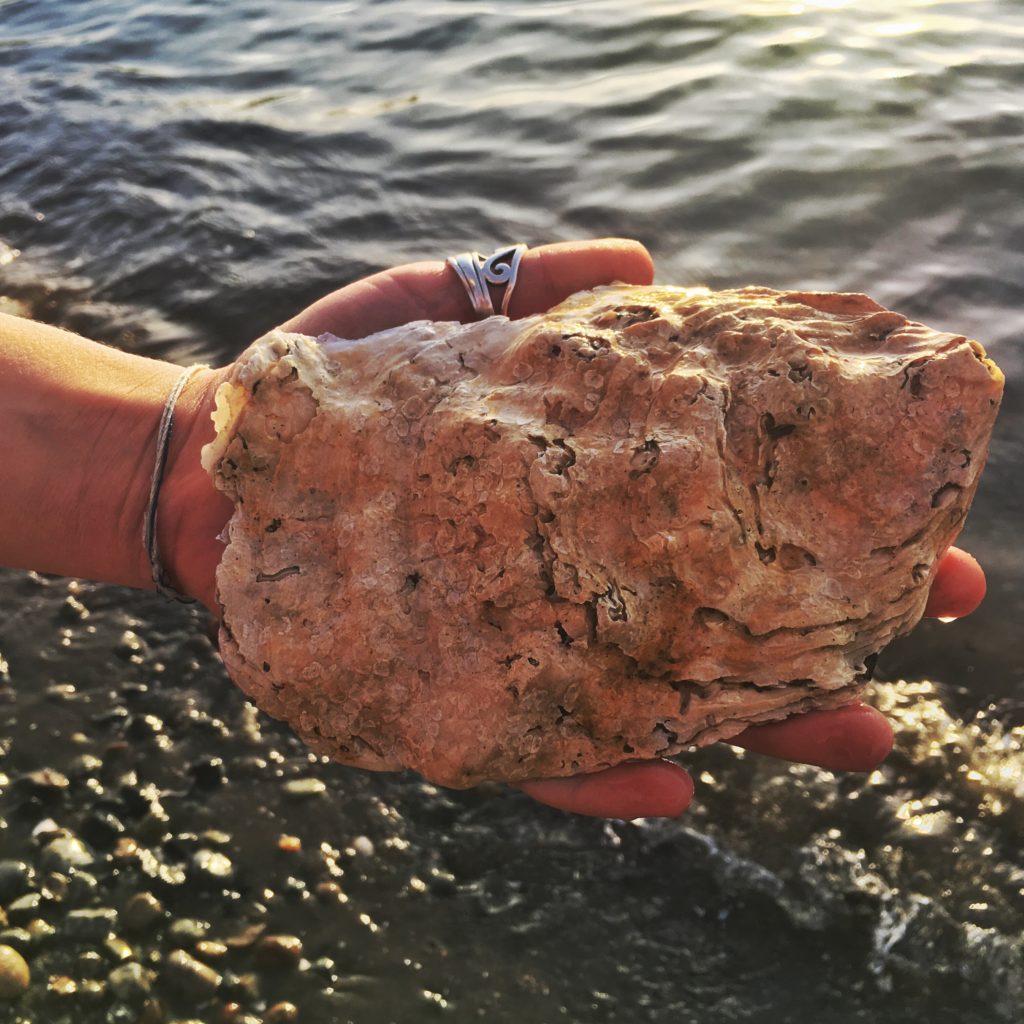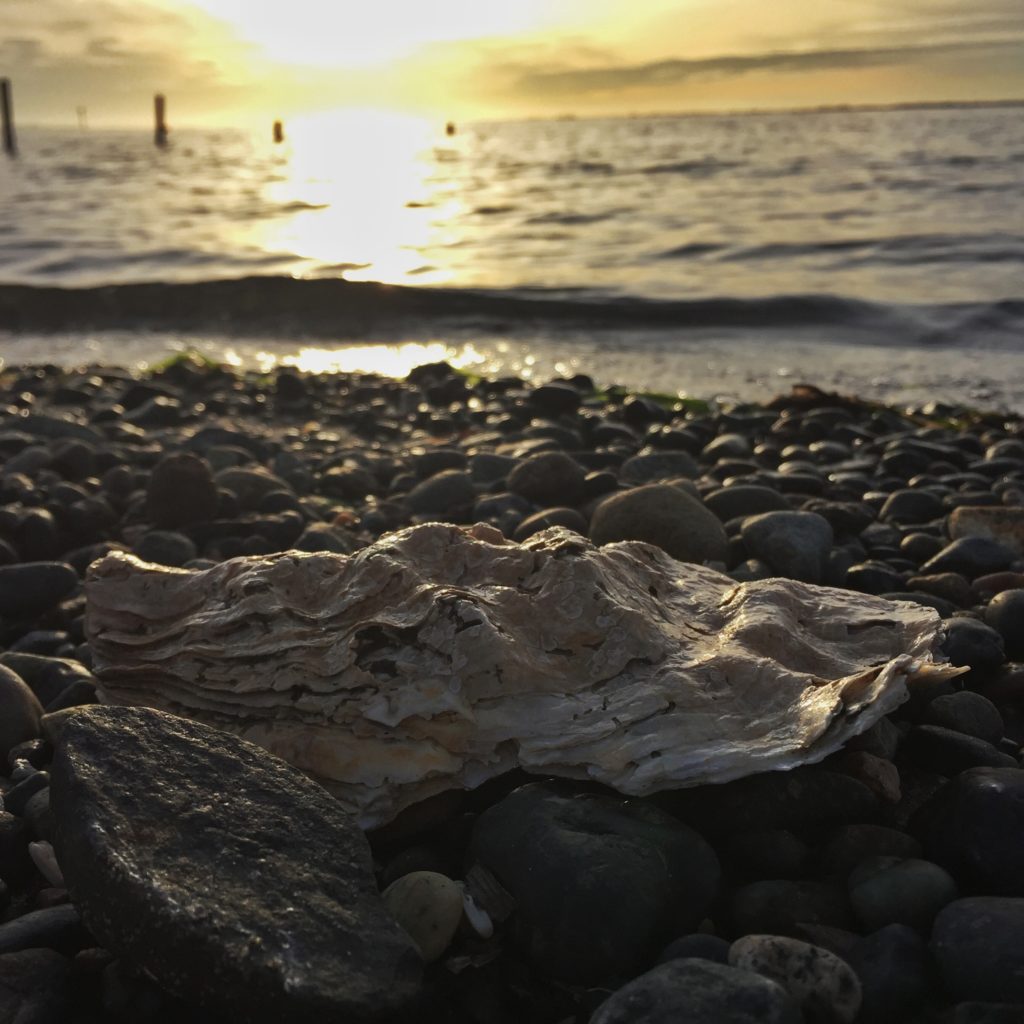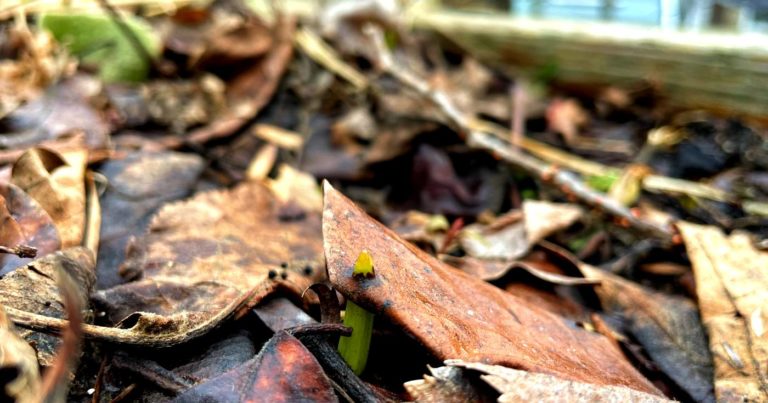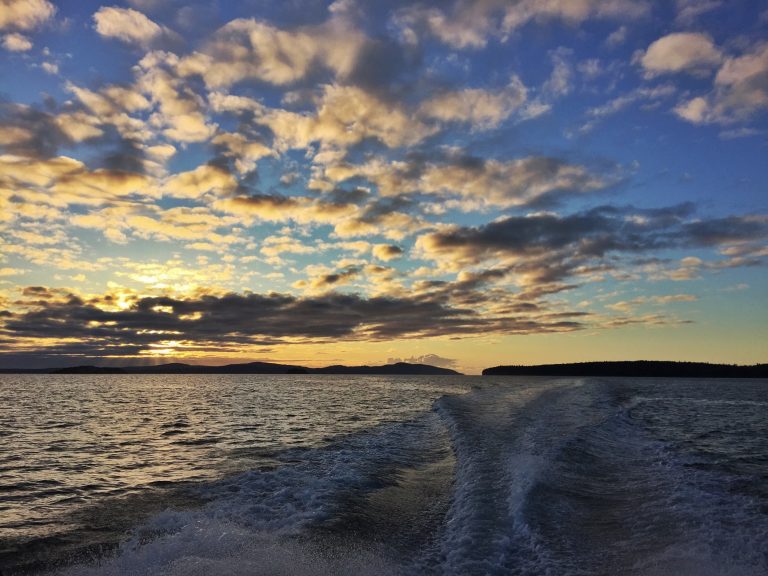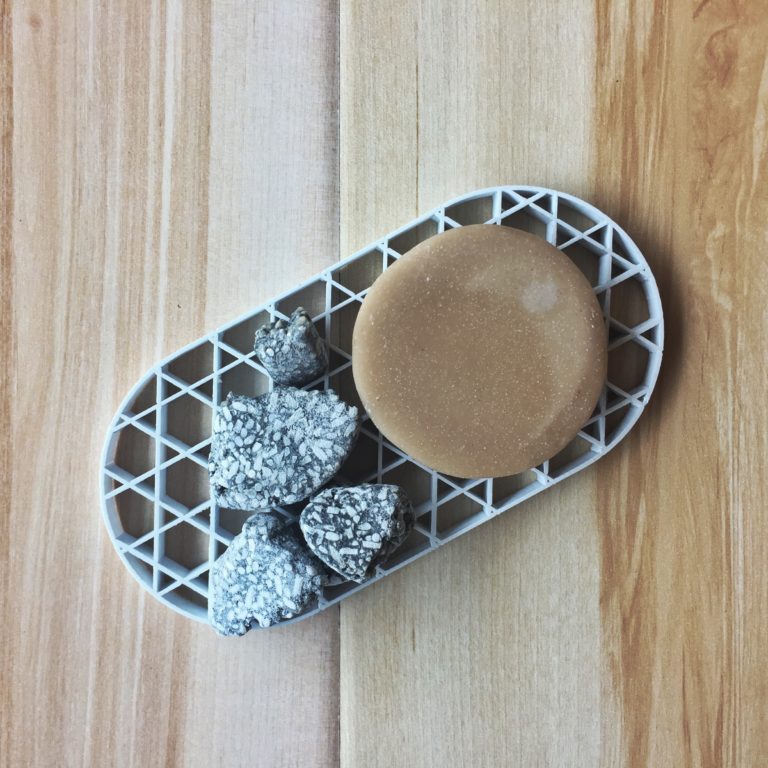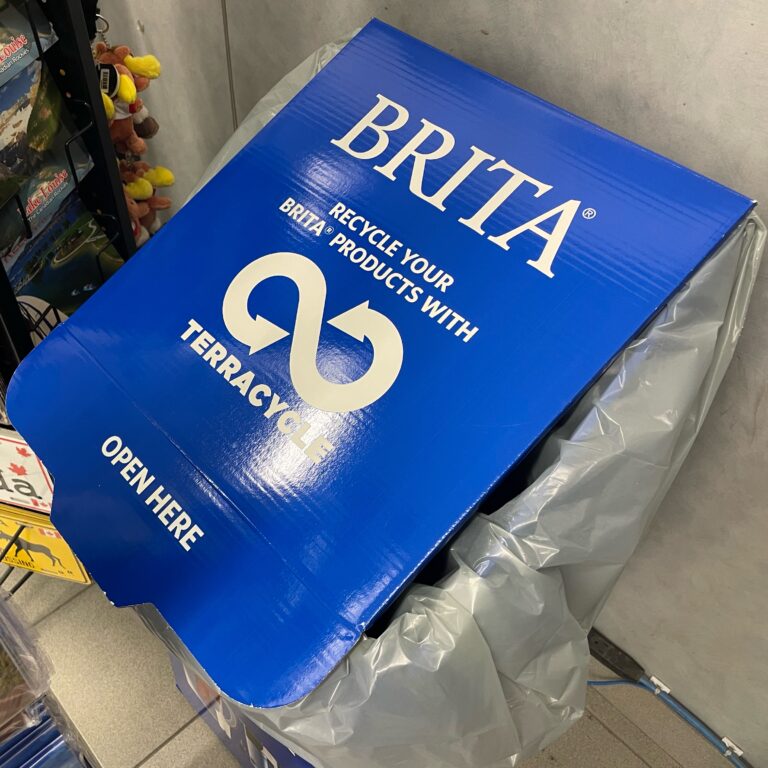Clean Up: Not Enough
On the road again…I just can’t wait to get on the road again…the life I love is talking trash and clean ups with all my friends…
Back to the ocean!
We are in Vancouver, BC for a quick trip to meet up with the fabulous folks at Plastic Oceans Canada. Tonight, we’ll hear more about their mission and work. It’ll be wonderful to connect with some like-minded folks in this fight!
Last night, we took a stroll along Blackie Spit, situated at the outflow of the Nicomekl River. Here, its waters meets up with Boundary Bay, before eventually flowing south, around Vancouver Island. Ultimately, this water is headed to the Pacific Ocean.
The spot is stunning. Views of the coastal mountain ranges in the distance, and calm, placid waters lapping against a rocky, shell-strewn beach.
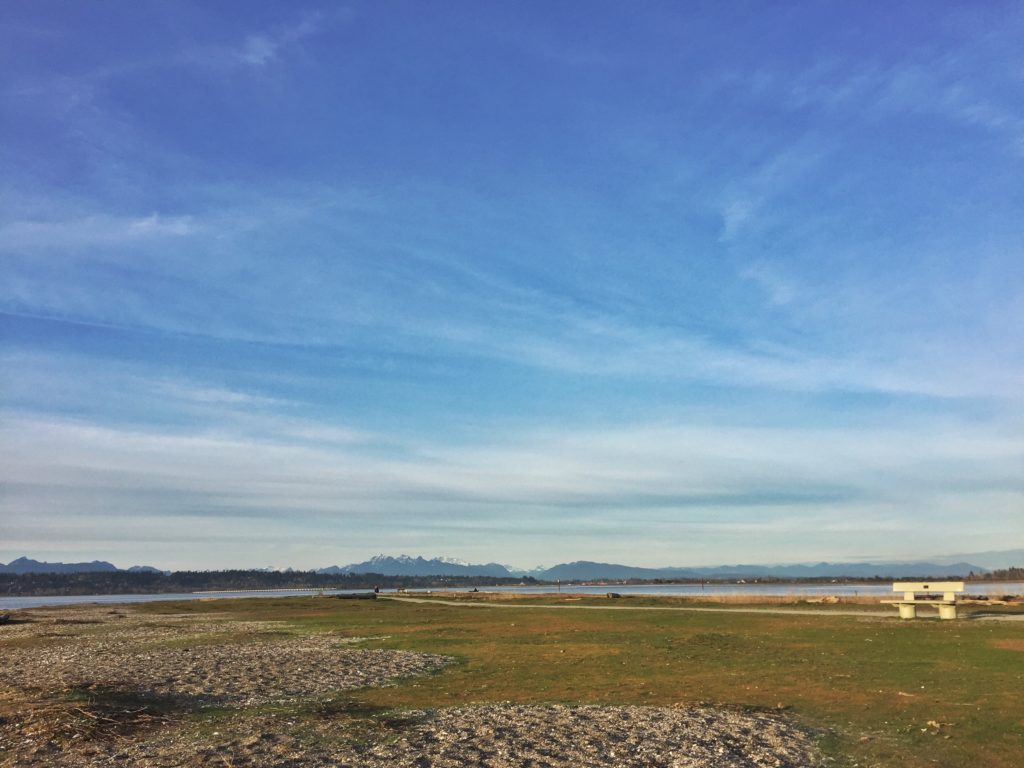
During our stroll, we unearth a gigantic oyster shell. Look at this thing! Nature is amazing. How old must this oyster have been??
Sunset with a side of…trash?
Blackie Spit is also quite a popular spot, as evidenced by the multitude of cars slowly making their way into the parking lot. Vancouver was predicted to have rain all week, so a surprise blue-sky day has people out in droves). Even as we are sitting on our bench, several people are walking around the beach, taking photos, picking up shells, or sitting in quiet solitude.
As the sun works its way towards the horizon, setting everything awash in a hazy glow of soft yellow, we slowly begin making our way back to our car. It’s only after leaving the immediate shoreline that we begin to notice, one by one, bits of human leftovers scattered amongst the shell fragments and stones. A bread bag tie here, a cigarette butt there…and all of a sudden the experience goes from being quite serene and wonderful, to somehow… tainted.
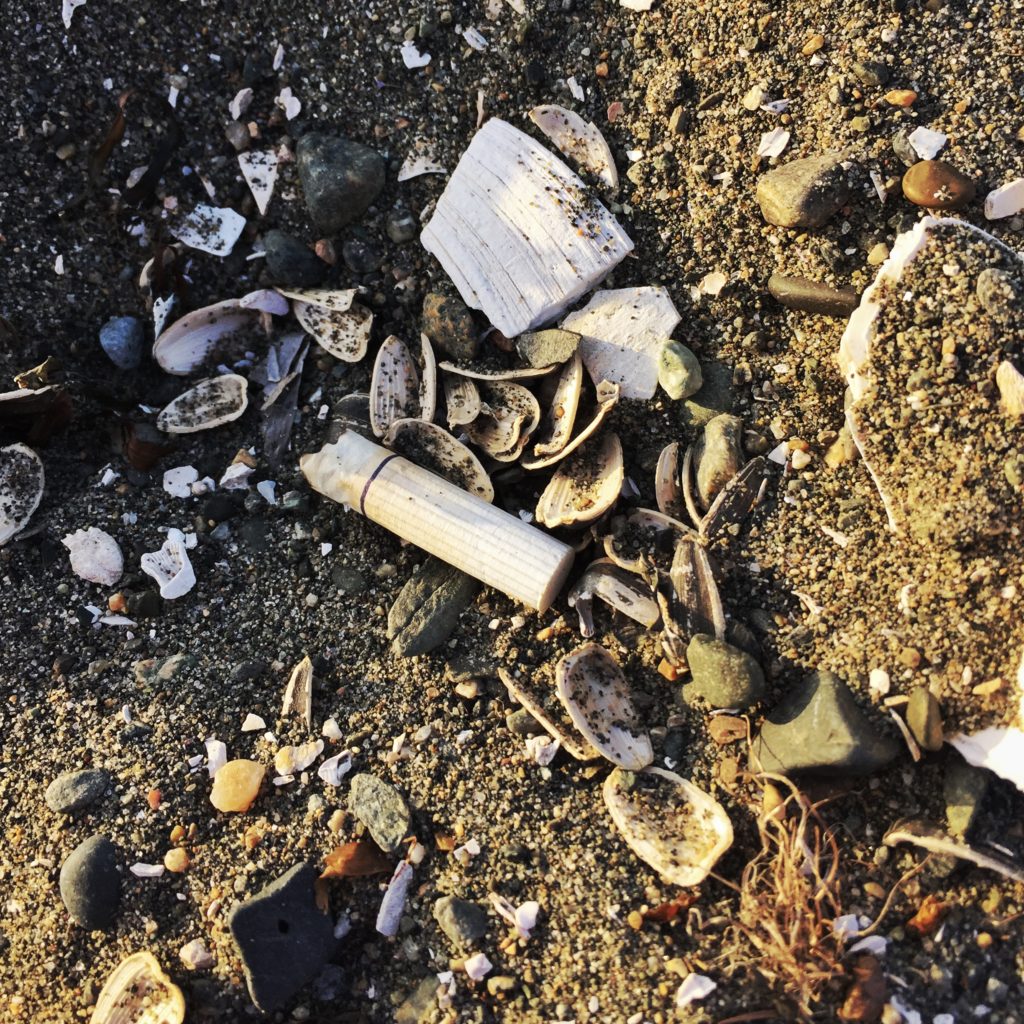
No butts about it – this trash sucks. 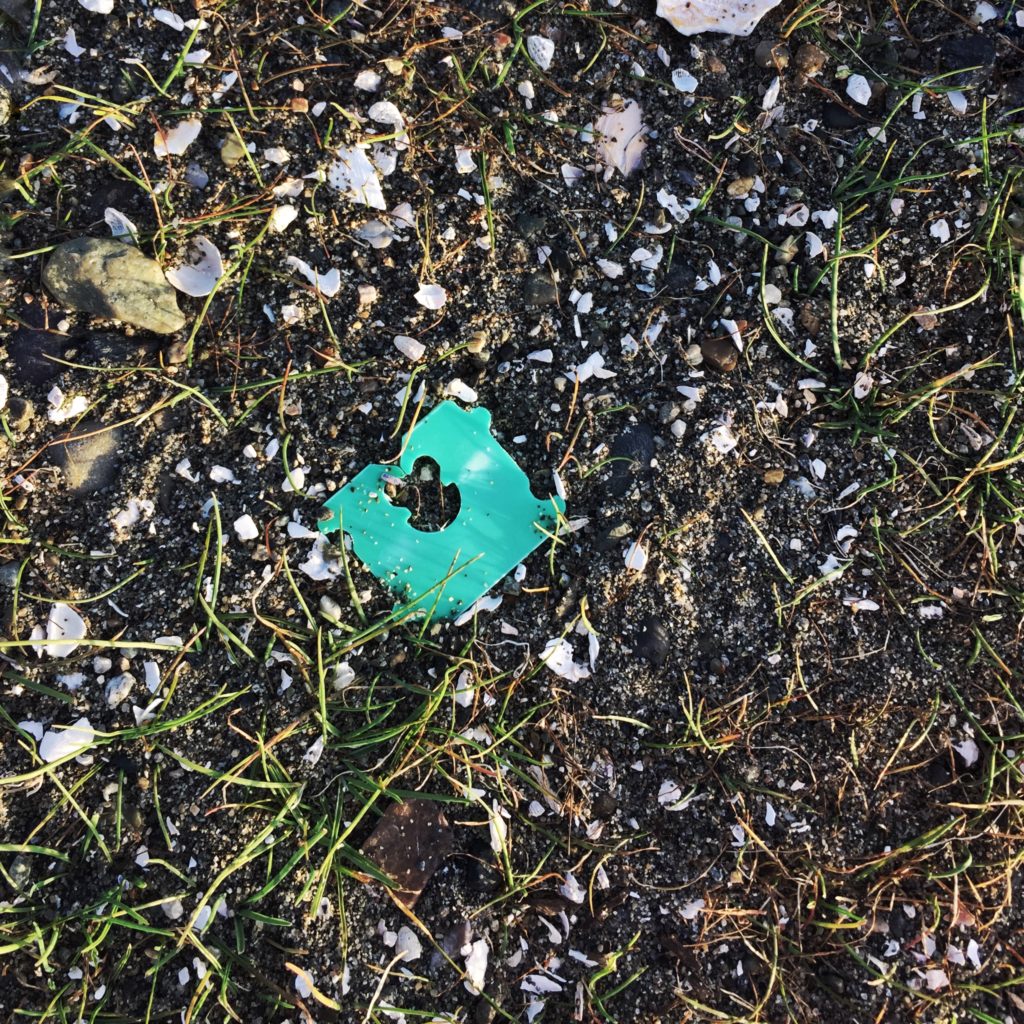
Bread bag ties act as colourful confetti on this beach
Clean up, clean up, everybody do your share…
I quickly picked up a few pieces of litter and disposed of them properly, but not before pausing to consider that my actions, although well-intentioned, are not a super fabulous solution to the problem. In that moment, I’ve saved that litter from making its way into the open ocean, or from being swallowed up by a bird, whale, or turtle…but if I came back to the same spot tomorrow, I’d likely find the same thing, all over again.
There is no one solution when it comes to plastic pollution, but I think we all wish that clean ups really were the answer, because they are so easy. Pick trash up, throw trash away…done. The simple truth is that we need multiple strategies to win this fight. And, ultimately…although it’s not what anyone wants to hear, we need a reform of the whole dang system.
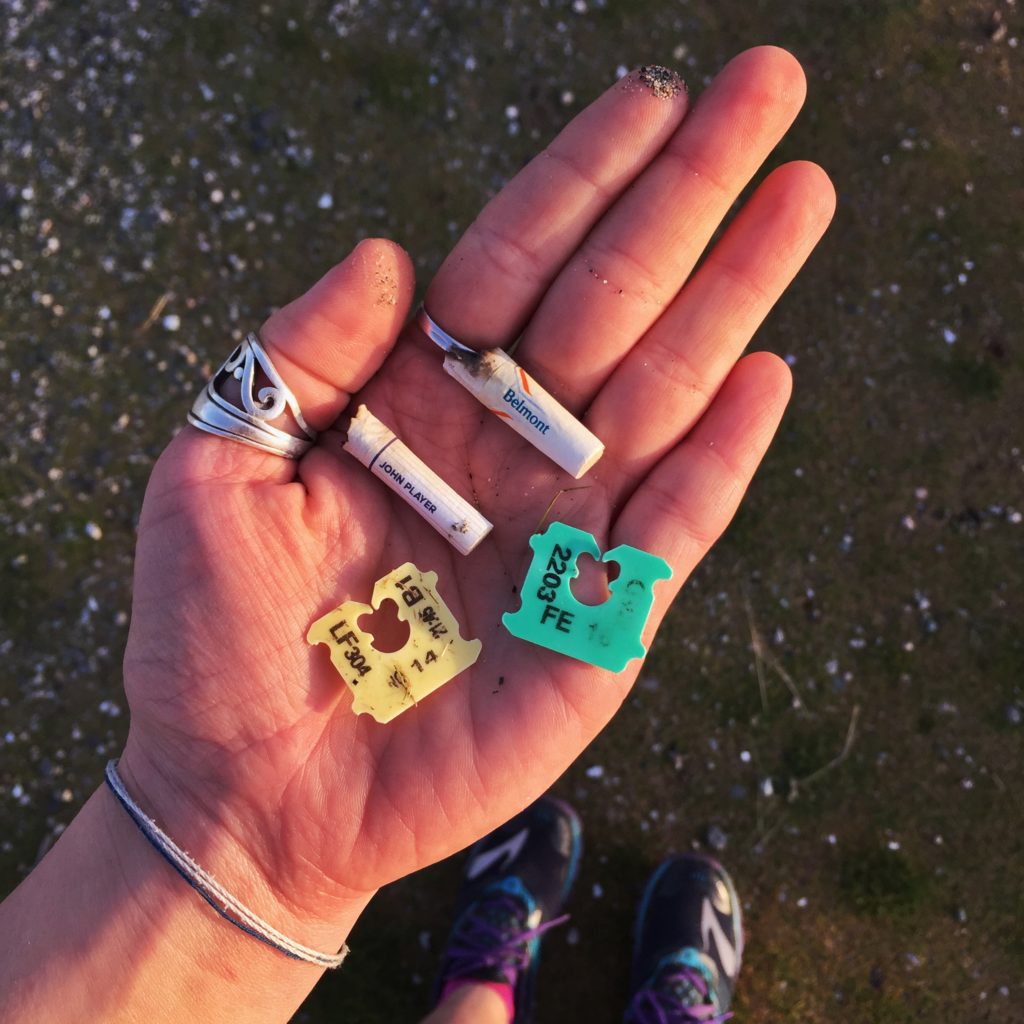
I’m reading a book write now called The Stop: How the Fight for Good Food Transformed a Community and Inspired a Movement, by Nick Saul and Andrea Curtis. It tells the story of how a food bank in Toronto grew from being a last-resort option for down-and-out folks, to a burgeoning community food centre, full of life and vitality. It is a beautiful success story, and part of why I love it is because of the way it reframes the whole concept of a food bank. Plastic pollution is a similar battle. It needs a reframe, a major reworking.
The River Baby Story
The Stop beautifully illustrates the struggle to solve hunger through a parable known as “The River Baby Story.” This parable has been used many activist groups because it gets at the core of what activism IS. The story goes as follows:
Once upon a time, there was a small village on the edge of a river. The people there were good, and life in the village was good. One day a villager noticed a baby floating down the river. The villager quickly swam out to save the baby from drowning. The next day this same villager noticed two babies in the river. He called for help, and both babies were rescued from the swift waters. And the following day four babies were seen caught in the turbulent current. And then eight, then more, and then still more! The villagers organized themselves quickly, setting up watchtowers and training teams of swimmers who could resist the swift waters and rescue babies. Rescue squads were soon working twenty-four hours a day. And each day the number of helpless babies floating down the river increased. The villagers organized themselves efficiently. The rescue squads were now snatching many children each day. Though not all the babies, now very numerous, could be saved, the villagers felt they were doing well to save as many as they could each day. Indeed, the village priest blessed them in their good work. And life in the village continued on that basis.
One day the villagers noticed a young man running northward along the bank. They shouted, “Where are you going? We need you to help with the rescue.” He responded, “I am going upstream to find the son of a gun who is throwing these kids into the river!”
Irving Zola, original author (via multiple sources) – this version c/o Public Rep
In the world of plastic pollution advocacy, this is not a new concept at all. When I was living on Midway in 2012, picking up bottle cap after never-ending bottle cap, it was apparent to me that I could spend my entire life cleaning up bottle caps and more would just keep washing up, beyond my lifetime.
Swimmin’ Upstream
Similarly on this beach in BC, I could clean up bread bag ties and cigarette butts for forever, but as long as bread with plastic ties are still made, and people continue to smoke, there will still be bread bag ties and cigarette butt litter on these beaches. The solution then, lies not in managing the crisis, but figuring out why the crisis is happening in the first place, then stopping it. For that, we need to go upstream.
The way I see it, we have a choice: either we keep picking up after careless people, or we re-think our entire global food system. Yeah, I know – easy, right??
But, education!!
Surely, if more people knew how destructive they were being, they wouldn’t litter!
I sort of don’t buy this line of thinking anymore. I mean, it’s 2019 and there are still cigarette butts and bag ties on beaches!! We live in a world full of distractions, shiny things, selfie-sticks, and problems. To ask every single person to go plastic-free, or change their habits, is a tall order and one I don’t think we as a species are fully prepared to make. The only way for bread bag ties and cigarette butts to completely disappear from the face of the earth is if companies stop making them. Full stop.
Because let’s be honest: there will always be careless people littering.
What’s an environmental activist to do?
Here are some options:
- Buy out of the current system: refuse to purchase bread in bags w/ plastic ties. Modern day boycotts, people!
- Tell all of your friends. For real – it’s not enough to just do your own thing in a vacuum. One person is just one person, until they are two, then for, and on and on.
- Petition, petition, petition. Get in the faces of the companies making this crap, and hold them to account. Demand EPR legislation. EPR is Extended Producer Responsibility and it puts the onus on the producer of the destructive product to deal with it, rather than the consumer purchasing it.
- Ban it. Again, not the be-all, end-all solution, but a good place to start. Get the crap off the shelves and stop us from reaching for it!
In conclusion, I applaud clean-up efforts because they highlight the issue of waste, and bring people together in a tangible, meaningful way. Clean ups build community and inspire, engage, and raise awareness. But we simply cannot stop there.’
If we truly want plastic-free waterways, beaches, and oceans, we have to commit to doing the hard work of reforming the systems that are creating this nonsense in the first place. I believe this is where we’re headed, but there is much work to do!
